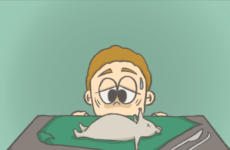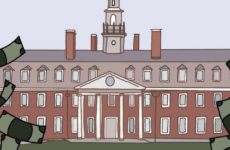Classics is broadly defined as the study of the languages, culture, history, and literature of Ancient Greece and Rome. Liberal arts education itself has its roots in classics — in fact, “liberal arts” is a phrase derived from the Latin artes liberales, meaning “the skills worthy of a free person.” The field has produced a long line of illustrious students with diverse talents: Karl Marx, revolutionary and sociologist; W.E.B. Dubois, civil rights activist; Oscar Wilde, playwright and novelist; and Toni Morrison, Nobel Prize- and Pulitzer Prize-winning novelist, to name a few. And yet, classics is a dying field; humanities departments across the nation are increasingly vulnerable to facing budget cuts, and classics are especially at risk. Although this may come as no surprise as pre-professional majors dominate the highly competitive world of the 21st century, I believe there is intrinsic value in studying the classics that a vocational education cannot provide.
“I want to major in the humanities,” many high school students say, followed inevitably by: “but I’d rather have a job.” Although wanting to secure work is more than understandable, it is unfortunate that so many young adults feel that they can only do so at the cost of sacrificing the pursuit of their passions. In the age of automation, it seems as though schools too have become assembly lines, mass-producing the same types of students: pre-med, pre-law, pre-business. However, what most people fail to realize is that in a job market clogged with pre-professional majors, an education in the humanities offers something unique: character. Classics and other disciplines of a traditional liberal arts education allow students to develop the ability to think by learning from the past firsthand — to confront the profound questions that have always puzzled man is to better understand the human experience. Too often we forget that although industries may evolve at breakneck speeds, human nature does not always keep pace. Therefore, possessing a flexible mind capable of critical thinking proves useful not only in the workplace, but in life.
But perhaps we shouldn’t calculate the value of an education based on its employability at all. Naturally, the desire to return to a time where education wasn’t synonymous with job training is not an outlook exempt from backlash. Some criticize the starry-eyed romantics who desire education to mean developing the means to think, and think well, are unrealistic at best, and elitist at worst. And they might be right. But that’s not to say there isn’t value in familiarizing oneself with classics — or philosophy, or history, for that matter. Regardless of its value in the job market, studying the humanities is to better understand humanity. There’s something universal and timeless in the values passed from Homer to Vergil: Athena’s proclamation that tied juries should acquit the accused in Oresteia asserts that mercy should prevail over harshness; the brotherly love between Castor and Pollux defies death itself; and the hamartia that befalls even the greatest of heroes humbly remind us that we are all fallible. To study the classics is to see all the glory and pettiness of man echoed in an age that doesn’t seem so distant, despite all the years that separate the classical era and our own. The universality of classics allows it to transcend time, and its resonance today proves its imperishable relevance. But its value doesn’t lie solely in permitting us to passively appreciate the parallels between then and now: to study classics is to join an ongoing conversation about the big questions that has been happening for millennia. After all, to understand where we are and where we are going, we must first understand where we’ve been.




